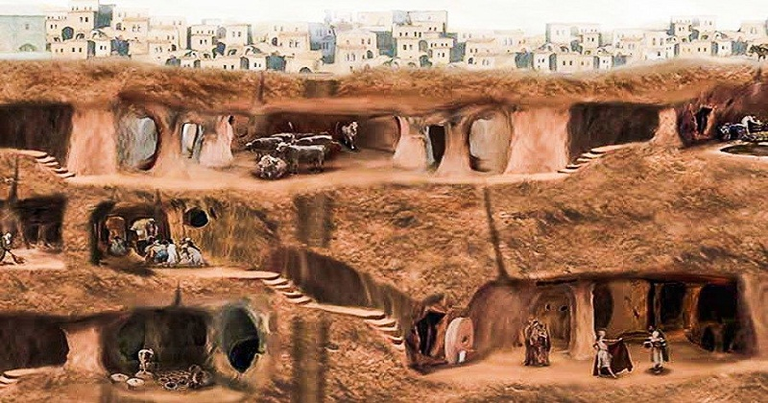Derinkuyu city
Derinkuyu, a remarkable subterranean city in Turkey's Cappadocia area, was constructed in the eighth century BC. C. and showcases the inventiveness of past societies. This massive edifice, which is 18 floors deep and was intended to house 20,000–60,000 people, was unintentionally found in the 1960s.
Rooms, schools, chapels, stables, kitchens, and even a sophisticated ventilation system that supplied fresh air to the whole city were all part of its subterranean living facilities.
According to historians, Derinkuyu was mostly utilized as a haven during invasions and conflicts, particularly during the Byzantine era when Arab forces posed a danger to the area.
What could have caused humans to dwell underground for extended periods of time is still up for debate, though.
Was it defense against invaders, harsh weather, or some other, more enigmatic cause? The city's immense size and intricacy imply that underground living was a highly structured survival strategy rather than a short-term fix.
The existence of Derinkuyu begs interesting issues concerning the difficulties these ancient communities faced and their extraordinary capacity for adaptation.
For the reason, this underground marvel provides an intriguing window into the past and is a monument to human ingenuity and perseverance.

Source of potential text plagiarism
Direct translation without giving credit to the original author is Plagiarism.
We would appreciate it if you could avoid plagiarism (full or partial texts, videos, photography, art, etc.)
Thank you.
Guide:
Why and How People Abuse and Plagiarise
If you believe this comment is in error, please contact us in #appeals in Discord.